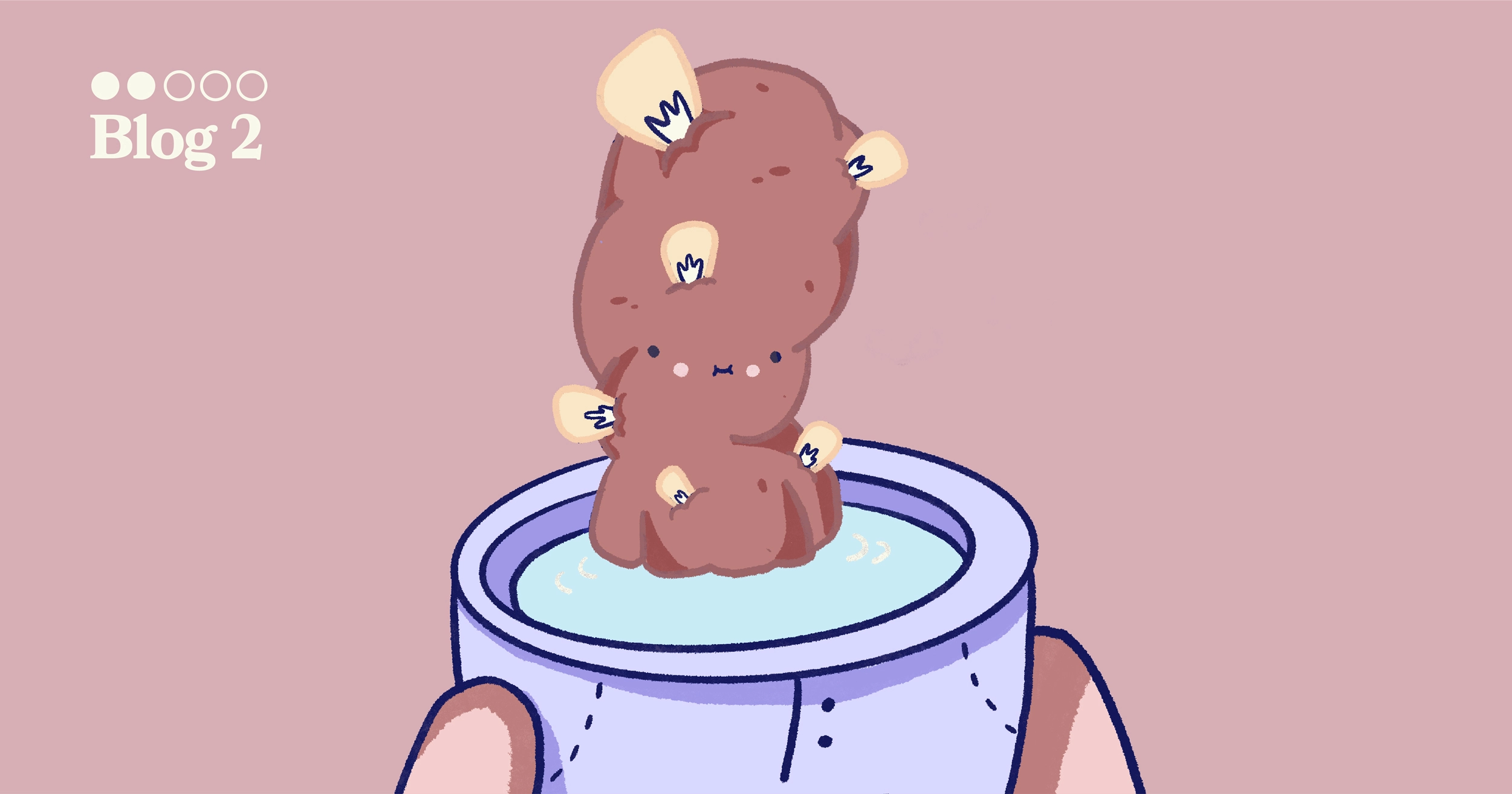
- Ontvang een gratis cadeau bij bestellingen vanaf €30
- Klanten beoordelen ons gemiddeld met een 4,6 / 5 (882 beoordelingen)

Bowel movements, how do you do it? There is a special technique! Many people don’t know that your posture, breathing and even the time you spend on the toilet have a major impact on your bowel movements. The goal is for your toilet visit to become a moment of relief. Proper posture helps your pelvic floor muscles relax, making everything go more smoothly. These muscles support important organs like your bladder and bowels, and play a big role in regular bowel movements and healthy bowel transit. By making a few simple adjustments, you can notice a lot of difference!
If you want to get your stool moving, follow these 3 tips:
A simple trick to make your bowel movements even easier is to use a small stool to raise your feet slightly so that your knees are above your hips. This is the most natural position because it relaxes the colon and pelvic floor muscles, making the process easier. This promotes faster bowel movements and reduces unnecessary squeezing, which is important to prevent problems such as hemorrhoids or a weakened pelvic floor.
Getting bowel movements going: let your body do the work! It is important not to push too hard. Excessive effort can damage the pelvic floor and cause long-term problems. By exerting too much pressure, the muscles become overstretched and eventually weaken. In addition, increased pressure in the rectum can lead to the development or worsening of hemorrhoids.
To avoid discomfort, it is important to relax and let your body work naturally. Breathe calmly and deeply rather than pressing hard. Breathing in and out in a relaxed manner allows your pelvic floor muscles to loosen up, which facilitates the passage of stool without forcing it. By following these tips, you will find that your bowel movements are easier and more comfortable.
Want to get your bowel movements going? Then adopt some habits that will improve your bowel transit. Hydration plays an important role; make sure you drink at least 2 liters of water daily. Water makes stools softer, allowing them to move more easily through the intestines. In addition, eating certain foods can support your digestion.
High-fiber fruits such as kiwi, apple and plums are particularly effective. It is also important to add colorful vegetables at every meal, as the fiber in them helps regulate your bowel movements. With these simple changes to your diet, you can significantly reduce constipation.
Avoid bad habits on the toilet
We have a tip for you: if you’re used to sitting on the toilet for long periods of time and scrolling on your phone, it’s time to stop doing that! Sitting on the toilet for a long time increases pressure on your pelvic floor, which over time can lead to damage and even increase the risk of hemorrhoids. A quick, concentrated toilet trip without distractions is best. Just go in, listen to your body, and take the time to quietly do your need without rushing. But don’t make the toilet a place to answer emails or catch up with friends – that’s better done outside the bathroom!
The pelvic floor is not only responsible for supporting internal organs, but also plays an important role in controlling the bladder and rectum. In addition, this muscle group is essential for the elimination of waste products, or stool. A strong and functional pelvic floor facilitates the passage of stool without the need for pressure or squeezing.
In addition, the pelvic floor supports the digestive organs, especially the rectum. The anorectal junction and the pudendal plexus, where the important pudendal nerve is located, are very important in controlling the sphincter muscles and bowel movements. A weakened pelvic floor can lead to obstacles in bowel movements, resulting in constipation and other digestive problems. This can also contribute to incontinence.
There are several warning signs that may indicate that your pelvic floor is weak. These signs include difficulty defecating, feeling like you haven’t completely emptied your bowels, having to push continuously, having to wipe more than three times with stool still visible, or general discomfort in the pelvic area. If you experience one or more of these symptoms, it is important to take action to strengthen your pelvic floor!
What are the consequences of a weak or prolapsed pelvic floor?
A weakened or prolapsed pelvic floor can have serious effects on your quality of life, including incontinence, difficulty defecating and pelvic pain. It is crucial to consult a specialized physical therapist. The good news is that the pelvic floor can be trained and rehabilitated with proper exercises and professional guidance.
There are many factors that can undetectably weaken the pelvic floor. Excessive pressing during bowel movements, improper lifting techniques and poor posture are some causes. Chronic constipation can also contribute to the weakening of this area. During your next toilet visit, pay attention to your habits and make adjustments as needed to protect this important part of your body.
Getting relief going? Then good posture, conscious breathing and avoiding excessive exertion are a must. A strong pelvic floor makes bowel movements easier and helps prevent problems such as constipation and hemorrhoids. Make your next toilet visit efficient and comfortable by making these simple changes to your daily routine. You’ll soon notice the positive effects.
If you suffer from involuntary loss of stools, flatulence, constipation or hemorrhoids, do not hesitate to seek professional help. Ser Pélvica offers counseling and support to people with pelvic symptoms to improve their quality of life. Also, through the Evie Health app, you can easily schedule a pelvic assessment with female health physical therapists around the world and begin improving your pelvic floor health. Your body will thank you! Do you have any questions for us? Feel free to ask them, contact us!

Get the latest news on menstrual freedom straight to your inbox!
HQ Beppy, Netherlands
Signalman 1-3
3034 KH Rotterdam
[email protected]
+31 (0)10 467 65 73 (9.00 – 17.00)
Chamber of Commerce: 24123466
Beppy, Belgium
9A Countess Elisabethlaan, P.O. Box 77
2320 Hoogstraten
[email protected]
+32 (0)78 158 349 (9.00 – 17.00)





